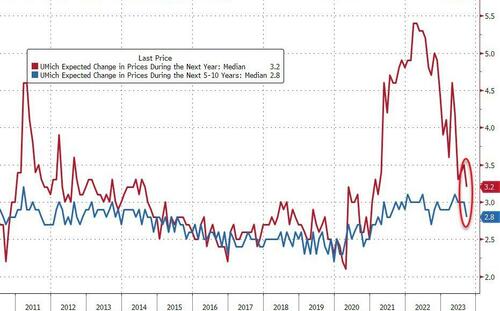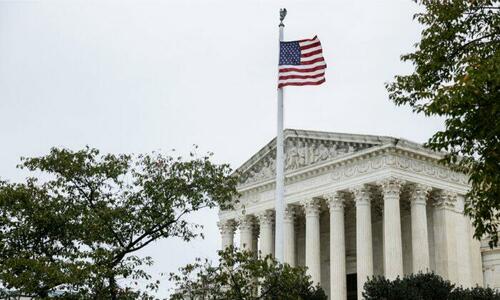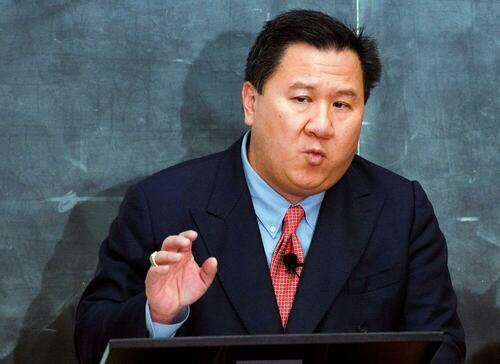I thought I’d pass along excerpts from the opinions concurring and dissenting as to the Michigan Supreme Court’s pronouns order; recall that the order itself provides:
Parties and attorneys may also include Ms., Mr., or Mx. as a preferred form of address and one of the following personal pronouns in the name section of the caption: he/him/his, she/her/hers, or they/them/theirs. Courts must use the individual’s name, the designated salutation or personal pronouns, or other respectful means that is not inconsistent with the individual’s designated salutation or personal pronouns when addressing, referring to, or identifying the party or attorney, either orally or in writing.
Here is an excerpt from the concurrence by Justice Welch, joined by Justice Bolden:
… “[P]ublic confidence is the only currency that courts and judges have, and impartiality is central to public confidence.” … I believe amending MCR 1.109(D) is a positive step forward that will bolster public confidence in the judiciary and help to promote a sense of fairness among members of the public who interact with the courts.
Our courts and court staff must conduct business in a way that is cognizant of changes in language and societal norms. The amendments to MCR 1.109(D) reflect that basic truth and acknowledge that with changes in our society, our vocabulary also evolves. In order to be fair and impartial, courts, as the face of the third branch of government, must conduct business in a way that does not give the appearance of misgendering individuals, intentionally or otherwise. A primary goal of this change is to ensure that the judiciary operates in a manner that is objectively respectful of the individual identity and personal pronouns of the members of the public that we serve, regardless of the subjective viewpoints of individuals working within the court system. I agree with Justice Bolden that the MCR 1.109 amendments are not a landmark change given the long-existing requirement that all judges must treat those before them respectfully.
It was not that long ago that many judges would not permit a female attorney to use the salutation “Ms.” instead of the unmarried “Miss” or married “Mrs.” The salutation was the subject of much debate, which today has largely been forgotten. Later generations of attorneys would likely be confounded by the notion that women in court had to use a salutation that indicated marital status while men faced no such requirement. Society has, thankfully, long moved past that debate. Judges no longer have to know the marital status of female attorneys appearing before them in order to professionally address them in court. Today, requiring the use of “Miss” or “Mrs.” in court would be not just antiquated, but also disrespectful and discriminatory. Extending the use of gender neutral or personally specified pronouns to litigants or parties reflects another societal shift. It also aligns with the Legislature’s recent amendment of the Elliott-Larsen Civil Rights Act, MCL 37.2101 et seq., to explicitly prohibit discrimination on the basis of sexual orientation or gender identity.
It is not a secret that the notion of honoring a person’s specified pronouns has become a source of much debate. The judiciary has certainly not been immune to this, as evidenced by extensive comments submitted and testimony offered at the public hearing in response to the proposed rule change. The objections tend to be three-fold: (1) grammatical confusion, (2) record confusion, and (3) personal beliefs.
The first objection is that the use of the pronoun “they” for a nonbinary individual is grammatically confusing when referring to one person. Admittedly, this is a societal shift, but it is not one without history…. “[L]exicographers and the authors of English style guides have long changed practices to reflect the evolution of the English lexicon.” While a shift may require more intentionality (and a bit of practice) for generations that grew up learning one language rule, the next generation shifts quickly and with ease. In fact, society has used “they” as a singular pronoun since at least the 1300s, and only shifted to the masculine “he” preference more recently.
Historically speaking, prominent authors, like William Shakespeare and Jane Austen, have used gender neutral pronouns in their writing. See, e.g., Shakespeare, The Rape of Lucrece (1594) (“Now leaden slumber with life’s strength doth fight; And every one to rest themselves betake, Save thieves, and cares, and troubled minds, that wake.”); Austen, Sense and Sensibility (Whitehall: T. Egerton, 1811), p 217 (“‘Perhaps then you would bestow it as a reward on that person who wrote the ablest defence of your favorite maxim, that no one can ever be in love more than once in their life—for your opinion on that point is unchanged I presume?'”)….
It is also worth noting that while the third-person pronoun “they” can refer either to one person or to a group of people, the human brain has the remarkable ability to understand the difference quickly. The second-person pronoun “you” likewise can refer to one person or many people, something that was also discussed in Professor Garner’s National Review article. And yet writers—and their readers—skillfully navigate that distinction through context and without controversy. You can tell the difference if I am addressing you, the reader, or you, the public. While it may take some additional time for some to adjust to the change, society has navigated grammatical shifts many times through the centuries.
The second objection raised to the use of a person’s specified pronouns in the judiciary is that a record will be confusing if underlying evidence identifies a party by one gender, but that person prefers a different pronoun in court proceedings. I noted in Gobrick that a footnote made it very clear in that case why the Court of Appeals majority used a gender-neutral pronoun in the opinion. Additionally, I noted that the use of gender-neutral pronouns was not a new concept….
Finally, people object to honoring a person’s specified pronouns on the basis that they do not personally agree with the notion that someone can switch genders or be nonbinary. This was the subject of a great deal of the input we received after publishing the proposed amendments. Whether for religious or other reasons, many comments reflected a personal belief that gender could not change. But the rule provides that “other respectful means” can be used to address a party who makes a specific pronoun request. Certainly, asking our judges to be respectful to litigants using other general neutral means (such as addressing a party as “Attorney Smith” or “Plaintiff Smith”) does not force anyone to violate their beliefs.
Judges are ultimately public servants. We serve the entire public and are required to treat those who come before us with civility and respect. The gender identity of a member of the public is a part of their individual identity, regardless of whether others agree or approve. Additionally, it is not always possible to know someone’s personal pronouns based solely on visual observation, and allowing parties and attorneys to identify their personal pronouns for the courts removes ambiguity and the risk of misgendering an individual. This rule provides much needed guidance and provides courts with several options for how to respectfully address parties and attorneys who wish to designate a specific salutation or personal pronoun. The amendment of MCR 1.109(D) will help to promote and preserve the judiciary’s credibility and currency with the public that we serve while also providing guidance to judges and court staff.
An excerpt from Justice Bolden’s separate concurrence:
I fully agree with the Court in adopting this amendment. I write to demonstrate my support and mitigate potential concerns raised during the public comment process. To me, this amendment of MCR 1.109 is not landmark. Rather, it mirrors the expectations found in our judicial canons. The amendment seeks to spell out what the judicial canons require and provide an avenue for litigants and attorneys to ask to be acknowledged in a certain way and thus treated with dignity. It aims to prevent judges from discriminating based on gender identity. It ensures that judges respect people. Allowing individuals to include their personal pronouns in filings affords judges the opportunity to ensure those appearing before them receive the respect they deserve. The judicial canons already require treating every person with courtesy and respect without regard to a person’s race, gender, or other personal protected characteristic. This amendment is merely a more detailed example of how judges must act to meet the requirements articulated in the canons, and it is in line with our antidiscrimination caselaw, statutes, and policies….
Some commenters have raised First Amendment concerns, arguing that the amendment compels speech and/or infringes upon religious liberty. However, Code of Judicial Conduct, Canon 2(A) and caselaw help to address these concerns. First, Canon 2(A) requires judges to “accept restrictions on conduct that might be viewed as burdensome by the ordinary citizen and [they] should do so freely and willingly.” Similarly, the United States Supreme Court has explained that government employees have certain limitations on their freedom that they must accept in the workplace. Judges, of course, are employed by the government, and when they are on the bench, they are not working in their individual capacity….
{This amendment does not require judges to use a pronoun. Courts may still refer to litigants by last name or by a party designation, such as “plaintiff” or “defendant.” Likewise, courts may still refer to attorneys by last name or another title like “counselor.” What this amendment does is require judges who are provided with pronouns identified by a party or attorney to refrain from using nondesignated pronouns when using pronouns to refer to those individuals during legal proceedings.}
An excerpt from the dissent by Justice Zahra, joined by Justice Viviano:
… As the United States Court of Appeals for the Sixth Circuit noted, “the use of gender-specific titles and pronouns has produced a passionate political and social debate.” The hundreds of comments both supporting and opposing this proposed rule attest to this division. Some believe that the use of preferred pronouns is simply a matter of courtesy and that those who oppose it are stubborn, perhaps even bigoted. Others, however, believe they should not be compelled, especially under oath and/or in conflict with their deeply held religious beliefs, to affirm a person’s preferred pronouns that are inconsistent with the biological gender on that person’s birth certificate.
All told, this is a fluid political debate into which our judicial branch of state government should not wade, let alone dive headfirst and claim to have resolved. Such hubris has no place within the operation of a judicial branch of state government. As aptly stated by the Catholic Lawyers Society of Metropolitan Detroit, “[t]he Court should decline to insert itself into one of the most controversial social issues of our time, declare a winner, dismiss objections as mere products of bigotry, and threaten to punish dissenters whilst ignoring their constitutional rights.” I am deeply troubled by the Court’s willingness to do so.
To the extent this Court is merely attempting to ensure that all litigants are treated respectfully, this rule change is entirely unnecessary. Our Code of Judicial Conduct, Canon 2(B), provides that “a judge should treat every person fairly, with courtesy and respect.” This is accomplished without the proposed rule. To the extent a litigant requests use of a pronoun inconsistent with the biological gender reflected on the litigant’s birth certificate, courts should have the discretion to accommodate that request in deference to the litigant’s wishes or, alternatively, refer to the litigant without using any pronouns. In this way, judges will not be required to act inconsistent with their religious beliefs, and every litigant will be treated with courtesy and respect.
Certainly, if a judge elects to reject the use of personal pronouns or the use of a gender-neutral method of identifying a litigant or lawyer, and instead uses pronouns inconsistent with those desired by the litigant simply to demean that litigant, such conduct would violate the Code of Judicial Conduct, Canon 2(B). But what if a judicial officer fails to use a preferred pronoun out of a sense of religious conviction? I have little doubt that this question will one day be resolved by the Supreme Court of the United States. Until that time, this Court should do everything in its power to avoid taking sides in this social debate.
This proposed rule change is much worse than a solution in search of a problem; it is a directive that will undoubtedly inflame conflict and exacerbate the social division of the people of Michigan. Let us not overlook the fact that it is decidedly rare for a litigant to request that a court use a preferred pronoun that is inconsistent with the biological gender reflected on the litigant’s birth certificate. The first noted instance in our courts was in December 2021, when a Court of Appeals judge wrote a concurring opinion explaining why he would not abide by a criminal defendant’s preference to be referred to by the pronouns “they” and “them.” The concurring opinion was zealous, but not disrespectful. It simply defined this emerging issue to the Michigan judicial system. It is unprecedented for this Court to take such swift action in the face of such a novel and evolving issue. The swiftness with which the Court imposes this rule does not account for the actual problems that it is certain to create.
This court rule is an open invitation to abuse by litigants eager to gain any measure of control over their fight. It is all too common for litigants possessing a scorched-earth mentality to delay, distract, and inject confusion into legal proceedings. The goal is usually a mistrial or to harbor error for appellate review. This is no small matter. This situation is rendered all the more untenable by the absence of language providing courts with the authority and discretion to stifle bad-faith litigants. While the overwhelming majority of parties and lawyers in Michigan’s courts act in good faith even when they strongly disagree with each other, courts routinely and, sadly, regularly encounter those who seek to misuse or abuse the judicial system, and a rule that denies trial courts the authority to control such actors is misconceived and imprudent. {Abuses of the system by lawyers and litigants are well documented. See, e.g., In the Interest of CG, 403 Wis 2d 229, 268-269 (2022) (discussing cases in which a party has sought to force courts to use a new name consisting of an obscenity or racial epithet); Giron v Chase Home Mtg Fin, LLC, unpublished opinion of the United States District Court for New Mexico, issued June 13, 2012 (Case No. 12-cv-033), nn 1 and 2 (discussing the grammatical gymnastics that “sovereign citizens” force courts to play with respect to names).}
Apparently to avoid violating the free-speech rights of private citizens, the above rule applies only to judges, and it does not compel the use of any preferred personal pronouns by the parties themselves, attorneys, witnesses, or others. If any private citizen refuses to acknowledge another’s designated salutation or personal pronouns, the judge cannot compel them to do so. Still, “if a court were to compel the use of particular pronouns at the invitation of litigants, it could raise delicate questions about judicial impartiality.” In some cases, “a court may have the most benign motives in honoring a party’s request to be addressed with pronouns matching his ‘deeply felt, inherent sense of [his] gender.'” “Yet in doing so, the court may unintentionally convey its tacit approval of the litigant’s underlying legal position.”
In some cases, the use of preferred pronouns might even be hurtful to another party. An example provided by comment mentioned a rape case involving a biological male defendant and a biological female victim. Under the rule, if the defendant asks the court to refer to the defendant using she/her pronouns, the court is required to do so, which could cause further trauma or embarrassment to the victim.
More pragmatically, unlike the rule proposed for comment, the rule that a majority of the Court adopts provides no basis for the judge to ensure a clear record under circumstances when a private citizen refuses to acknowledge another’s preferred personal pronouns. The result would be a record littered with inconsistent usage of pronouns to identify the same person. At the least, there are far too many circumstances in which the rule will lead to unnecessary confusion at trial and on appellate review.
Further, there is a distinct likelihood that judges will accidentally and repeatedly use the wrong pronoun and be held accountable by the Judicial Tenure Commission. Indeed, even in the single noted case in which a litigant preferred to be referred to by the pronouns “they” and “them,” “defendant’s counsel frequently defaulted to ‘he/him’ during oral argument[.]” Suffice to say that if defense counsel in that case, someone who actually had a relationship with his client, repeatedly failed to identity his client by the proper salutation and personal pronouns, then we should expect that our judges will often violate the rule as well. The difference of course is that judges are subjected to far greater scrutiny and can be held accountable under this rule.
In sum, the rule adopted by a majority of the Court will create problems and will only cause confusion within our courts. The majority’s good intentions on this matter will only impede the efficient administration of justice in our courts. Judges are already obligated to treat everyone with courtesy and respect.16 And judges can treat everyone with courtesy and respect by avoiding personal pronouns and referring to litigants and attorneys by court-appropriate designations, such as plaintiff [last name], defendant [last name], counselor [last name], witness [last name], etc. Courts already often engage in this practice particularly when writing in criminal cases with multiple defendants and civil cases with several parties. I trust that our judges will continue to treat all persons with courtesy and respect. I dissent from the promulgation of this court rule that unnecessarily compels judges to use a litigant’s or attorney’s preferred personal pronouns.
And an excerpt from Justice Viviano’s separate dissent:
When the topic is political, as it is here, [reforms that impose one side’s view] can only undermine the public’s confidence in courts’ ability to serve as impartial arbiters of the law. The old saying that “turnabout is fair play” should counsel caution. The membership of this Court changes, and majorities with different perspectives succeed one another. A majority with a different outlook might view the Court’s present action as empowering them to implement rules that would be anathema to the present majority. Indeed, such a majority could seek to implement a rule contrary to that adopted today. What would stop it? This Court’s repeated forays into such topics set a precedent for this Court to dabble in politics through our rulemaking authority. And all the arguments that the concurrences employ against the constitutional concerns with the present action could in turn be employed to support the opposite rule. I have my doubts that the majority would be so cavalier about the First Amendment implications of their actions if the shoe was on the other foot.
This is not, of course, an attempt to take sides in the social and political debate that the majority wades into or to advocate for the opposite rule—quite to the contrary. My purpose is to demonstrate the foolishness of judges taking any stance on this or any other contentious political topic, especially when doing so is unnecessary. This administrative matter arose as a result of a single episode: Judge Boonstra’s separate opinion discussing this topic, with which a majority of the Court of Appeals panel disagreed. Moreover, as Justice Zahra explains, our ethical rules already require that judges treat parties with respect. Code of Judicial Conduct, Canon 2(B). There has been no indication that this rule is insufficient to address any relevant concerns in a neutral manner.
Justice Welch believes today’s action is necessary to instill public confidence in the courts by reflecting “societal shift[s].” Respectfully, I disagree on how courts acquire and maintain the public’s trust. I certainly do not believe that it is by our ability to detect and measure public sentiment. For one thing, we do not have the training or institutional capacity to study and correctly interpret the necessary data. More importantly, although we are elected by the people, our duty in adjudicating disputes and overseeing the courts is not to provide the particular results that certain people or groups might desire on policy issues. Rather, we are elected to faithfully interpret and enforce the laws and regulations adopted by the policymaking branches, so far as they are consistent with the Constitution….
Only in this way, through the impartial adjudication of cases and administration of the courts, can we earn the confidence of the public and be worthy of that confidence. When courts dabble in politics, they invariably alienate the losing side of the political debate and forfeit legitimacy with large portions of the public. By once again taking stances in a political debate, the Court will not earn the public’s trust, nor should it. Rather than instilling confidence, the result, I fear, will be to encourage the view that this Court is a political institution. If this view becomes entrenched, both sides may seek to use the judicial power to advance their own political ends. And all that will matter in adjudicating cases and administering the courts is the achievement of “politically desirable results[.]” This would be a tragic result for the rule of law and the people of Michigan….
The post Opinions Related to Michigan Supreme Court's Pronouns Order appeared first on Reason.com.
from Latest https://ift.tt/k9GTdx0
via IFTTT











